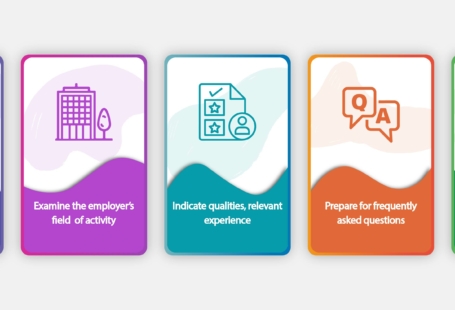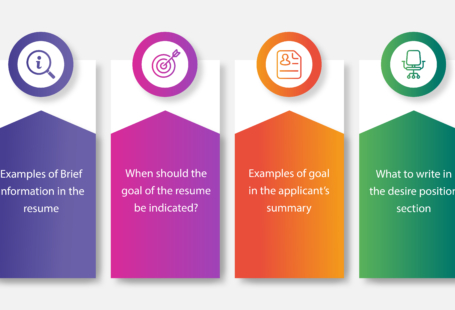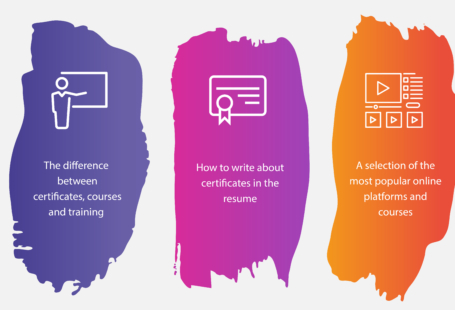A resume is an employer’s first impression of you as a future employee. In this case, both form and content are equally important. Not everything is as complicated as it first seems. The main thing is to avoid typical mistakes and follow simple rules. The following discussion will focus on how to write a resume.
Resume form: what is required?
The first thing to look at is the structure. The resume should be divided into several main blocks that contain only essential information.
As a rule, these are:
- Brief biographical information
- Work experience
- Results
- Skills
- Education
These items may vary according to the position and profession, but in most cases, this is the appropriate format. Of course, you can just use a constructor where the structure is already worked out.
Brief Information
Full name, contact details and specialisation will be enough.
State clearly and specifically who you are as a specialist. This usually corresponds to the job title, but sometimes additional information is provided. All this must be in the same direction, otherwise, you might come across as a jack of all trades, master of none.
Work experience
When submitting a resume for a particular job, use only the information that the employer really needs. Not all your experience and skills can be relevant here. If you have changed jobs frequently, you should choose the three basic positions that most closely correspond to the desired job.
Do you want to get a job in a defence company? In that case, there’s no need to indicate in your resume that a year ago, in search of yourself, you decided to start designing lingerie.
Results
Highlight the projects that most closely correspond to the objectives of the desired post. It is important not to overdo it if there are many such projects – you need to choose the 3 most successful ones that you are really proud of.
Focus not on the function you performed, but on the results you achieved. Provide specific facts and figures.
Skills
The skills can be professional and technical. First, define your qualities and skills: management, project management, accounting and auditing, product design. Second, list the specific specialised programs, applications and techniques required to perform the work: Adobe Photoshop, Adobe Illustrator, 3D max, etc.
Detail your skills and corroborate the facts.
Education and certifications
In addition to information about basic education (educational institution, specialisation, scientific degree and year of graduation), you can indicate the courses and master classes that you have completed, if these skills are relevant to the position you’re going for. They demonstrate a desire to develop professionally and keep up with modern trends.
Resume Writing: Things to avoid
Too much information
The resume is one single page. Only one page. Even if you have 25 years of experience in 60 different jobs.
In a world where tweets don’t always finish, a multi-page resume is a dubious idea.
On average, an HR manager’s first look at a resume lasts for no more than 6 seconds. Your task is to make sure that during this time the maximum amount of useful information about you is received.
Sociable, stress-resistant
There are words to avoid on your resume, words like sociable, stress-resistant, active, creative, responsible, executive, etc. This entire set of descriptions does not contain any specific information.
If you really think that certain qualities need to be emphasised, then substantiate the facts. Too often, candidates don’t care about what’s good for the employer. Out of hundreds of letters, the vast majority will run along the lines of :«I am good, wonderful, creative and unique, I very much want». Very few will state: «I will be useful to you».
Strange pictures
The category of strange in this case includes photos that are completely at odds with the position and profession for which you are applying. If your resume says you are a financial analyst, then attaching a photo from a nightclub or fishing trip may leave an undesirable impression.
Excessively formal options should also be avoided. It is better to focus on something mainstream and appropriate.
Speaking of photos, keep in mind that employers are now likely to go through your social networks. Either remove any compromising material or sort out your privacy settings.
If you still have questions about compiling a resume, you can always do further research on how to write a good one.




